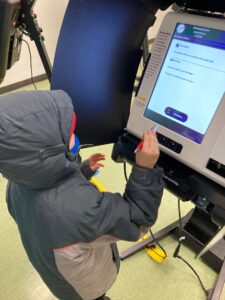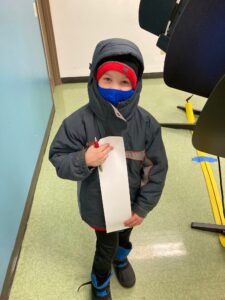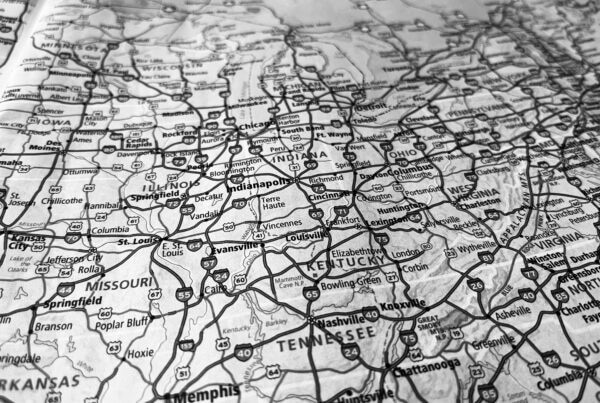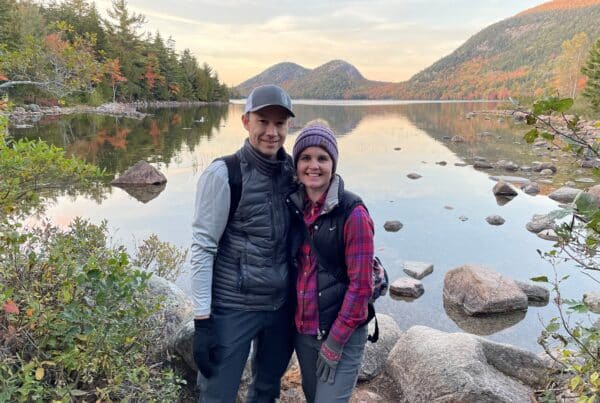Don’t worry, this is not a political advertisement. Don’t worry, we are not going to start singing the praises of one candidate or another, or one party or the other.
We’re concerned about hearts. More specifically, your child’s heart.
We’re passionate about connection. Your connection with your child.
We’re interested in the future. A future that our children will build and inhabit.
This year and this election have been described as a train wreck, a dumpster fire, a dumpster in a train wreck, or worse. Because of this, many people have the tendency to just try to ignore it and definitely not talk about it. And maybe it will go away. Others are screaming their opinions loud and clear any chance they get.
Be a Leader
We want to invite you to wade into this topic with your kids, for your kids. Our kids need us to walk them through this. The messier it is the more they need us to come alongside them to help them interpret it. (Interpretation is everything!) The negative ads, the endless barrage of half-truths, and the outright lies are especially confusing for our kids. But the question is how do we help them to be educated without becoming cynical?
I know this can seem overwhelming. It is hard enough to decipher all the information for ourselves, let alone teach our kids the right way to think. To begin, please don’t fall into the trap of thinking that things are worse than they’ve ever been. Division and negativity have always been a part of politics.
And don’t despair! Our kids can prosper regardless of the culture and politics around them. And our kids can be agents of change! You can look in the Bible at Daniel, who was an orphaned teenager in a pagan country who was able to prosper despite the circumstances. Nehemiah rose in the ranks of public service and influenced the king to make wise choices. Our kids can be like Daniel and Nehemiah if we train them. We want our kids to be leaders who can thrive in any kind of culture or government.
We also want them to influence the culture and the government. They can do this by voting. By sharing their opinion, and by sharing the Truth. As they get older, they can volunteer in campaigns, attend school board meetings, speak up at city council meetings, or even run for elected office themselves. But first they need to know about and understand how politics and government work.
Be Curious
Most kids get to the point where they are naturally curious about the outside world. They are intrigued by current events. The election is a great opportunity to build your communication with them. By inviting them into a ‘grown up’ topic, you are honoring and valuing them. You are creating a safe environment for them to ask questions and talk about meaningful and real things. By letting them into your world, you are setting the stage so that someday they will feel comfortable letting you into their world. Remember you don’t have to have all the answers. If you don’t know the answer go on the journey of discovery together. Teaching them how to find an answer is just as important as knowing the answer.
So let’s talk with our kids!
10 Secrets to Having Political Conversations With Your Kids:
- Start and end the conversation in prayer. Ask the Lord to open your eyes to the truth as you research and make your decision. End the conversation with prayer. Pray for the candidates and elected officials to hear the Lord’s voice and have the strength to obey it.
- Make it a conversation not a lecture. Some easy ways to do this is to watch a podcast or read an article together and discuss the different points the author makes.
- Ask questions, including “What do you think?” “What questions do you have?” They might not agree with you at first, and that is okay. It is a process to figure out why you believe a certain way. Allow them to think and explore, they have to be able to own it.
- Keep it fairly simple. Remember all topics we have with our kids should be ongoing discussions, not a once and done conversation. Start with the base layer and build on it as they ask questions or as they get older and understand more.
- Avoid absolutes such as “All Republicans this” or “All Democrats that…” There is a lot of variation and belief within the people who belong to a party. Talk about the similarities and differences between the parties but also the variability of how that plays out within a party.
- Focus on the positives and what is good. We are blessed to live in a country where the people have the freedom to select our own leaders. What good is happening in the government today? There is always something!
- Talk about the different issues that are at stake. As a family discuss which ones are the most important to you and rank them in order. No candidate will see eye to eye with all of your family’s beliefs. Often, we have to choose a candidate that most closely lines up with your top priorities. So, we need to know what is most important to you. It is also important to discuss that each family will put the issues in a different order based off their own life’s experiences. That doesn’t make other families right or wrong, just different.
- Tie it back to the Bible. The two greatest commandments are to love the Lord our God with all our heart, soul and mind and to love our neighbor as ourselves. How can we make laws that carry out the principles found in scripture? Which elected official will most line up with Biblical truths?
- Be respectful in your discussion. You may not like who is running or who is currently in office but they deserve to be discussed in a respectable way. Creating a disdain for a person will only prolong the division we have as a nation. We don’t have to like a person but we need to respect the office. Model for your children how to respect those who are in authority, even if we disagree with them.
- Commit to ongoing conversations. Just because the election is going to be over next week (thank goodness!) doesn’t mean we should stop talking about the current issues our country is facing. Discuss as a family how you are going to continue to learn about the issues at hand. How will you become more educated on racism, gender discussions, abortion, the economy? How will you do something to make American better? Where can you volunteer to help those in need?
For most of us politics is not our job or even our hobby, but we owe it to ourselves and our kids to be as knowledgeable and involved as we can. Each family will be called to different levels of involvement of course, but we all have the responsibility to be informed voters. It is our job as parents to shepherd our hearts and our children’s hearts through this important season. Yes, it can become discouraging. But just like all other challenges, this provides an opportunity for you to connect with your children in meaningful ways. And for that we can be grateful!
Resources
Here are some resources we have found that you can use to do discussion with her kids. Even if you don’t agree with the political views of these ministries or organizations, you can use the content to guide your discussion. If you strongly disagree with them you can even talk about bias and opinions and introduce the powerful influence of propaganda.
Billy Graham Evangelistic Association Election Guide
Another practical tip is to perform an internet search for your county’s election board to review the ballot ahead of time. The presidential election is important but equally important are the state and local elections. It really does matter who is on the state board of education or district court in your county. In fact, these races will affect your day to day life more than the president! There are also always extra questions on the ballot that we are given the opportunity to vote for or against. Do your research to know what is really at stake. The questions themselves do not give you enough information to make an informed decision. Know your opinion ahead of time. For an example, ours can be found here https://jocoelection.org/









